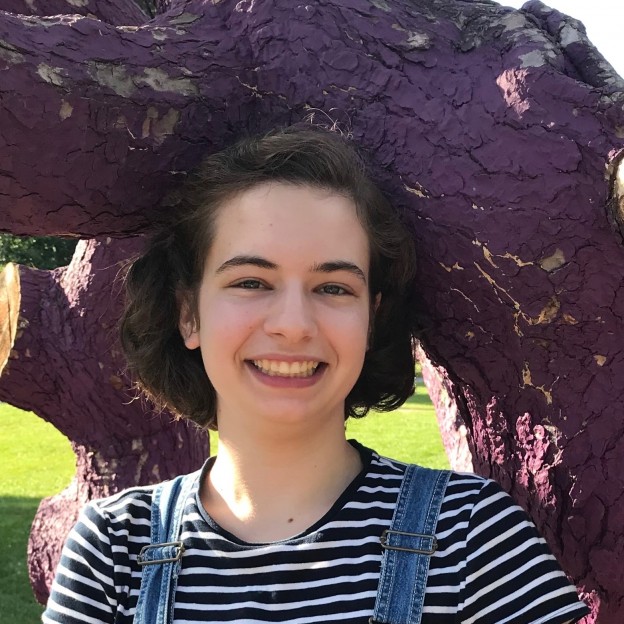Like many a Swarthmore student, Lili Tobias ’19 finds herself graduating this year with a somewhat different degree than her younger self had anticipated. She came to Swarthmore planning to major in linguistics, but soon, as she describes it, “music took over my life. And so now I’m a music major and linguistics minor.”
For Tobias, though, that academic transition was less a tortured decision than natural progression, something that “just happened.” A pianist in high school, at Swarthmore she began taking classes in theory, composition, and musicology, and joined the Swarthmore College Chorus and the Garnet Singers. Eventually she realized that most of her classes were related to music, and that those were the ones she really cared about. “The department really felt like home to me,” she says of choosing to focus on music. “I knew all the professors, I knew all the other majors… it just felt like that’s where I belonged.”
That sense of community is what Tobias names as the best part of her experience in Swarthmore’s music program, which although it may be small—there are only two majors in her year—is plenty mighty. She sees its size as a defining positive attribute, saying that “it’s so welcoming and we’re very close knit. The best friends I’ve made here” tend to be “connected to the music department in some way.”
The small size also affords a lot of personalized academic attention and opportunities. Tobias has taken a composition course, the only repeatable course in the department, every semester since sophomore spring. After one’s first time taking it, the class functions like an independent study, so, she explains, “it’s very individualized.” She gets tailored listening assignments from Professor Gerald Levinson, a well-recognized contemporary classical composer, that he thinks will relate to the direction of Tobias’s own work. She’s also had the opportunity to compose several pieces for the college Chorus and Garnet Singers, with the encouragement of its director Joseph Gregorio.
Tobias says she tends to listen to and compose mostly classical music, and especially admires “women composers of the past and of the present. I identify with them because there’s just a lot fewer women that go into composition.” She’s currently writing her senior comprehensive paper on Amy Beach, a composer in the late nineteenth and early twentieth centuries. Beach was an American musical prodigy who started composing as soon as she learned to play the piano as a young child, and, although she’s rarely part of modern classical repertory, earned in her own lifetime unusual acceptance and success in an overwhelmingly male field. For her senior comprehensive, Tobias will not only analyze Beach’s work from a theoretical and musicological perspective, but also perform on piano three of her songs, with soprano Rebecca Regan ’19.
She’s unsure as of yet as her exact plans post-graduation, although she says that “going into music publishing is something that’s definitely appealing to me.” Tobias got a taste of the business as an intern this past summer with Schott Music, a publishing company in her home city of New York. She describes herself as someone who likes editing and creating a pretty and polished final project, and “really enjoyed” combining those skills with her love of music.
Ultimately, whatever specific path she may take, Tobias feels certain that music “is going to be the main focus of my life somehow.”
Lydia Roe ’20
